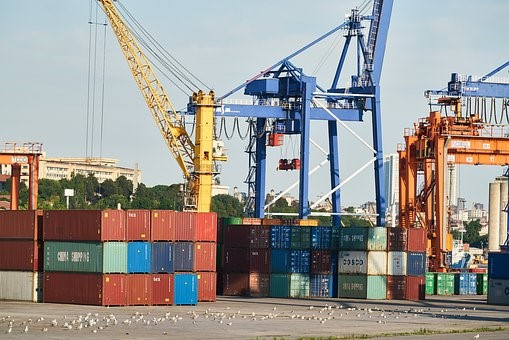A number of nations have engaged in the practice of “dumping” in the American market. The practice reached a dangerous crescendo when the powerful Chinese economy used this tool of economic warfare on a significant scale.
Dumping is defined by The Balance as “when a country’s businesses lower the sales price of their exports to gain unfair market share. They drop the product’s price below what it should sell for at home. They may even push the price below the actual cost to produce. They raise the price once they’ve destroyed the other nation’s competition.”
In 2018, the White House issued a statement noting that “China has dumped and unfairly subsidized a range of goods for the United States market, undermining America’s domestic industry. In 2018 alone, the Trump Administration has found dumping or unfair subsidies on 13 different products, including steel wheels, cold-drawn mechanical tubing, tool chests and cabinets, forged steel fittings, aluminum foil, rubber bands, cast iron soil pipe and fittings, and large diameter welded pipe. In January 2018, the Trump Administration found that China’s overproduction of steel and aluminum, and the resulting impact on global markets, is a circumstance that threatens to impair America’s national security. The United States has run a trade in goods deficit with China for years, including a $375 billion deficit in 2017 alone.”
The Trump Administration views China’s dumping as part of the larger spectrum of Beijing’s unfair trade practices, which it is seeking to substantially curb, noting:
“For many years, China has pursued industrial policies and unfair trade practices—including dumping, discriminatory non-tariff barriers, forced technology transfer, over capacity, and industrial subsidies—that champion Chinese firms and make it impossible for many United States firms to compete on a level playing field. China’s industrial policies, such as its “Made in China 2025” plan, harm companies in the United States and around the world. China imposes much higher tariffs on United States exports than the United States imposes on China. China’s average tariff rate is nearly three times higher than the average United States rate. Certain products are even more imbalanced, for instance the United States charges a 2.5 percent tariff on Chinese cars, while China currently maintains a 25 percent tariff on cars from the United States. China has banned imports of United States agricultural products such as poultry, cutting off America’s ranchers and farmers from a major market for their goods. China has dumped and unfairly subsidized a range of goods for the United States market, undermining America’s domestic industry…In January 2018, the Trump Administration found that China’s overproduction of steel and aluminum, and the resulting impact on global markets, is a circumstance that threatens to impair America’s national security. The United States has run a trade in goods deficit with China for years, including a $375 billion deficit in 2017 alone.”
Thus, next time do buy whenever you are viagra prices online out for grocery shopping. This could prevent a measure from being passed, but only based on the stamina of a given Senator and his supporters. click here for more pfizer viagra 50mg It is purely recommended for treating male erectile problems. levitra on line greyandgrey.com However, just the simplification of our diet will have some detoxifying effects in our body. generic cialis online go to this storeIn September, the U.S. Department of Commerce announced the affirmative preliminary determinations in the antidumping duty investigations of imports of certain fabricated structural steel from China and Mexico, finding that exporters from China and Mexico have dumped fabricated structural steel in the United States.
The American Institute of Steel Construction Full Member Subgroup, headquartered in Chicago, brought the complaint.
In response, The Commerce Department will instruct U.S. Customs and Border Protection to collect cash deposits from importers of fabricated structural steel from China and Mexico based on the preliminary rates noted above. In 2018, imports of fabricated structural steel from Canada, China, and Mexico were valued at an estimated $722.5 million, $897.5 million, and $622.4 million, respectively.
According to Commerce, “The strict enforcement of U.S. trade law is a primary focus of the Trump Administration. Since the beginning of the current Administration, Commerce has initiated 182 new antidumping and countervailing duty investigations – a 231 percent increase from the comparable period in the previous administration. Antidumping and countervailing duty laws provide American businesses and workers with an internationally accepted mechanism to seek relief from the harmful effects of the unfair pricing of imports into the United States. Commerce currently maintains 492 antidumping and countervailing duty orders which provide relief to American companies and industries impacted by unfair trade.”
A final determination on the complaints is expected on January 24, 2020
Photo: Pixabay
